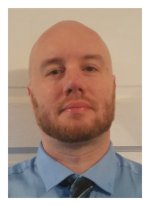By Lisa Petgrave-Nelson, LMSW, OSW-C, and Michael Grignon, LMSW, CCM, MBA
There is substantial research indicating lower rates of advance directives (ADVs) completion in Hispanic and Black communities. Various factors contribute to these lower rates, including cultural beliefs, mistrust, lack of awareness, religious views, family dynamics, and communication barriers. When engaging in conversations about advanced care planning with patients and family members from historically marginalized communities, oncology social workers must remain mindful of how these factors can impact these difficult discussions.
Here two social workers will discuss their ongoing journeys toward greater cultural awareness when engaging traditionally marginalized communities in discussions of advanced care planning.
Lisa Nelson, LMSW, OSW-C
As a Black woman working in cancer care, I often engage with patients from diverse cultural backgrounds to discuss the importance of establishing ADVs. During the pandemic, I learned a valuable lesson about not assuming that my race would automatically make me more trusted. Mistrust towards healthcare providers can significantly impact discussions about ADVs within this patient population.
While initiating a research study during the pandemic, I presumed that Black and Brown patients would be more open to someone who shared similar cultural beliefs and customs. However, I was surprised to encounter a level of distrust during the recruitment phase. This experience, although initially disappointing, highlighted the complexity and depth of the issue for many of our patients. Despite having followed some patients for years, they remained distrustful of the healthcare system, citing past injustices, current biases, microaggressions, and ineffective communication by healthcare providers.
To address these challenges, I reviewed and revised the study details, utilized interpreter services when necessary, and spent time thoroughly explaining my role and the study’s purpose. Although this extra effort was tedious, it improved recruitment and enhanced the study’s findings.
Patients in our clinics come from a variety of backgrounds, with diverse values, perspectives, and socioeconomic and cultural contexts. Many have a strong connection to their faith and believe in a higher power who determines their lifespan. In these communities, discussing or planning end-of-life care can evoke fear and be seen as blasphemous. One patient who refused to discuss ADVs expressed fear and felt it would be “hastening death.”
It is crucial for oncology social workers to be aware of the needs of these patients. Oncology social workers must strive to genuinely understand their patients’ cultural and religious beliefs to build trust. Efforts should extend beyond clinics to include community education and involve local and religious organizations. Effective communication, including the use of native languages, is essential for fostering trust and providing clear understanding while educating patients about advanced directives.
Michael Grignon, LMSW, CCM, MBA
Several years ago, while attempting to re-learn French, I remembered how much I enjoyed studying a foreign language. During that time, I kept promising myself that at some point I would try to learn Spanish, too. Eventually, I decided to take a class… then ended up taking another and another and another. Through this journey I found myself becoming more and more interested not just in the Spanish language, but individual Spanish-speaking countries, Hispanic culture, and the history of Latin America. I even learned something I probably should have already known: that Hispanics are the fastest growing minority population in the U.S. Finally, after listening to a Hispanic celebrity advocate for the need to elevate Hispanic culture and peoples, I decided to take a small step to help advance that effort and applied for a leadership position in an employee group at my job whose purpose is to do just that.
With this position and in honor of National Healthcare Decision Day, I took the initiative to research the level of completion of advanced care planning documents in the Hispanic community. After learning the statistics, I decided to write a newsletter article about how disproportionately fewer Hispanics have completed advanced directives. As Lisa has discussed, there are many reasons why this might be the case. The effect is that, by completing advanced directives at a lower rate than non-Hispanic whites, Hispanics are less likely than non-Hispanic whites to have their end-of-life healthcare align with their wishes. Often, this leads to more aggressive and lower quality care with delayed acceptance of palliative and hospice services at the end of life.
So, what else can I, as a white social worker, do? Much like the Spanish language, I am still trying to learn and better understand the interactions among Hispanic culture, advanced care planning and healthcare, in general. However, while I will never be an expert on Hispanic culture or the lived experiences of Hispanic peoples, as a former hospice social worker, I am an expert on end-of-life care and advanced directives.
I think, in this case, mutual learning will be important. Further, building sustained, trusting partnerships will be paramount. I will continue to educate myself on the needs of Hispanic people and share with this population my expertise on advanced care planning. My Hispanic clients and colleagues will continue to share their expertise on Hispanic culture and how it interacts with and impacts decisions on this important topic. I believe the key point will be that, together, we will help each other learn and grow and, hopefully, make an impact on end-of-life care planning for people in the Hispanic community.
Now, it’s your turn. We encourage you to challenge yourself, learn about the culture of a patient population you serve, engage more deeply with that population, and partner with that community to make an impact on the health of its members. After all, continuing to improve your cultural competency is part of your responsibility as an oncology social worker and, in the end, both you and the communities you serve will be stronger and better for it.


